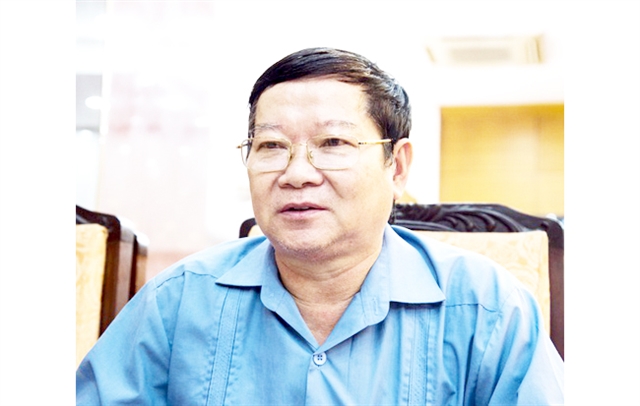.jfif) Opinion
Opinion

Former vice-chairman of National Assembly’s Committee for Culture, Education, Youth and Children Lê Như Tiến told Nhân dân (People) newspaper about problems that occur when public hospitals and medical centres are allowed to attract non-State investment

|
| Former vice-chairman of National Assembly’s Committee for Culture, Education, Youth and Children Lê Như Tiến. Photo nhandan.com.vn |
Former vice-chairman of National Assembly’s Committee for Culture, Education, Youth and Children Lê Như Tiến told Nhân dân (People) newspaper about problems that occur when public hospitals and medical centres are allowed to attract non-State investment
What do you think about the Government’s policy to attract investment from different sectors to public hospitals?
Non-State investment in public hospitals and medical centres has helped generate benefits that can't be denied. The investment has helped improve medical facilities and equipment, so doctors can provide better medical examination and treatment. However, as the investment is poured into costly equipment and investors want to get back the investment soon, patients must take many tests, especially those who need expensive medical equipment. Some hospitals or medical centres have focused too much on technical equipment rather than improving the capacity of staff, resulting in an unchanged quality of medical services but increased cost of services.
Problems are also reported during co-operation between public hospital and their private partners in medical equipment purchase projects, for example, the transparency in selecting private partners, bidding or assessing the hospitals’ financial plans.
The policy to attract non-State investment to public hospitals has been implemented for nearly 20 years. Meanwhile, children under six and people who receive social welfare are offered free medical examination and treatment, while health insurance coverage has increased for years. However, patients still have to pay high medical costs, up to nearly 40 per cent. It is a very concerning issue.
What do you think about the phenomenon in some hospitals where hospital staff buy medical equipment to earn profits?
In public hospitals, State funds budget and local funds are used to buy medical equipment. If hospital staff, particularly doctors, are allowed to join in the process of buying the equipment, the doctors may overuse testing, requiring patients to take unnecessary tests.
Another concerning issue is that some doctors overprescribe unnecessary medicines as drug stores offer them commissions.
In such cases, public hospitals are 'privatised' or 'commercialised' and those people earn profits from patients’ illness and pain.
What should be done to minimise the negative impacts of the investment attracting policy?
Việt Nam’s healthcare sector needs policies to attract non-State investment and ensure medical service quality, especially for poor patients and low-income earners. The investment must be transparent.
We welcome non-State investment but if the investment pushes up medical costs at public hospitals, it will affect patients, particularly poor and low-income ones.
I also think public health insurance should change its payment. The health ministry should issue standard payment for every disease/illness with a particular treatment, so health insurance agencies base on the standard to pay insurance. [Currently, public health insurance only pays for listed services, medicine and medical materials with regulated proportions depending on patient categories. Patients have to pay for the rest of the medical examination and treatment costs.]
The ministry should also tighten oversight of the partnership between public hospitals and their private partners. Hospitals should be ranked base on their competence and capacity. Now, hospitals are classified as national central hospitals, provincial hospitals, district-level hospitals and commune-level health centres.
Health insurance participants are supposed to access medical services at the hospitals they registered as primary healthcare units and are transferred to higher levels if their primary healthcare units fail to deal with their illness. The hospital classification is unreasonable. It makes patients struggle to access their desired hospitals with high-quality services because when they skip their primary healthcare units, they will receive less insurance payment. — VNS




